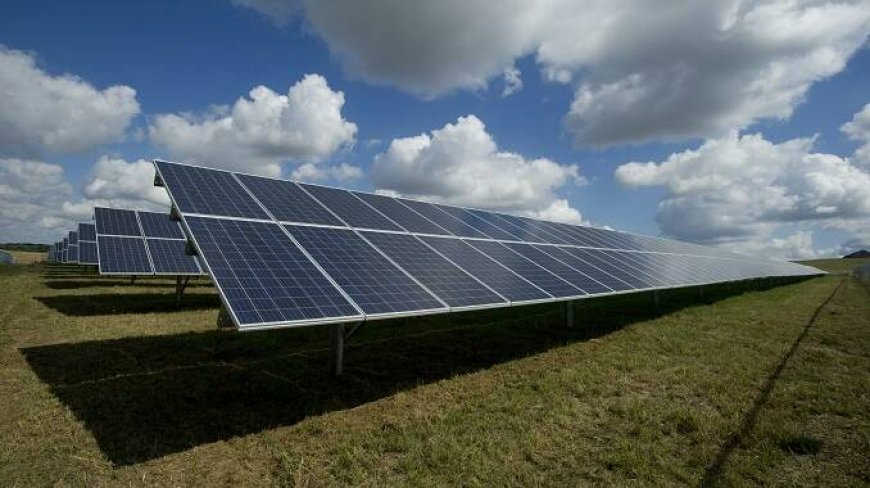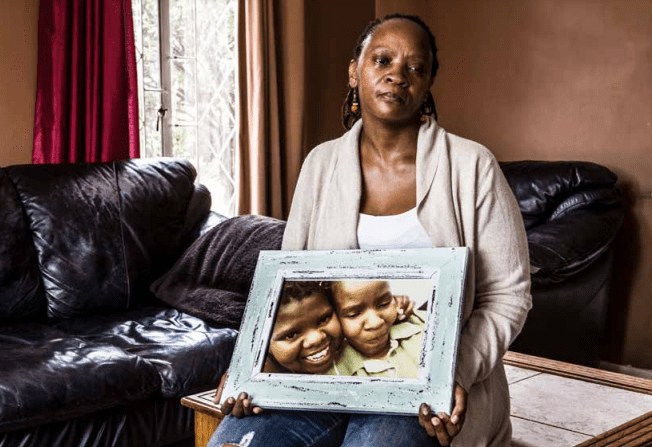AfDB US$10m loan facility to boost Zim’s clean energy
Business Reporter THE African Development Bank (AfDB)’s US$10 million loan to local firm Cicada, extended under the Pan-African bank’s Facility for Energy Inclusion (FEI), will boost Zimbabwe’s renewable energy production from solar, analysts say. Increased electricity production is necessary to improve the country’s energy security, a critical element for sustainable economic growth and development. The […]


Business Reporter
THE African Development Bank (AfDB)’s US$10 million loan to local firm Cicada, extended under the Pan-African bank’s Facility for Energy Inclusion (FEI), will boost Zimbabwe’s renewable energy production from solar, analysts say.
Increased electricity production is necessary to improve the country’s energy security, a critical element for sustainable economic growth and development.
The funding, extended from the bank’s US$400 million renewable energy fund for Sub-Saharan Africa, will help accelerate the development of solar projects.
Cicada Solar was already involved in several renewable energy initiatives in Zimbabwe, having installed rooftop solar systems for industrial firms such as ProPlastics and Paramount Garments.
Zimbabwe is currently grappling with power shortages as a result of low water inflows in Kariba.
The expansion of Hwange Power Station through the addition of two new units — Unit 7 and 8 — has provided relief through adding 600 megawatts (MW) to the grid.
Plans are underway to repower the old units at Hwange, which will guarantee 840MW. However, renewable energy is considered a sustainable solution to the country’s power challenges.
Engineer Sarah Kanyongo, a Harare-based energy consultant, commended the AfDB for its intervention.
“The FEI funding is crucial in the short term as it provides immediate relief to local energy shortages. By supporting small-scale solar power projects, this initiative not only addresses current energy needs but also contributes to long-term energy resilience,” she said.
The decentralised nature of solar projects, Eng Kanyongo said, will also help parts of the country that were underserved by the national grid.
“With mini-grid and off-grid projects, we are looking at improved access to energy for remote areas, which will significantly uplift those communities,” she added.
AfDB’s US$400 million FEI fund has a strong focus on small-scale renewable energy initiatives in Sub-Saharan Africa, especially in countries with low energy access rates. Eng Tichaona Haparari, a renewable energy expert, highlighted the potential of the FEI fund to boost power generation in Zimbabwe.
“The FEI supports a range of renewable energy technologies, including solar, wind, hydropower, and geothermal, which diversifies the energy mix and creates more reliable energy systems,” Eng Haparari said.
The fund’s focus on projects with a capacity of less than 25MW, he said, allowed it to cater for countries like Zimbabwe, where energy infrastructure remains underdeveloped. He further commended AfDB’s strategy of providing vendor financing to local businesses.
“The AfDB is taking an innovative approach by offering financing options that ease the financial burden for businesses,” he added.
“This not only promotes the adoption of clean energy but also ensures that more companies can transition to renewable energy, which will lower their operational costs and reduce reliance on unstable power supplies.”
Economist Mr Shelton Manjengwa indicated the potentially positive economic impact of the FEI fund and AfDB’s energy financing activities.
“With stable and affordable renewable energy solutions, we can expect businesses to perform better and become more competitive,” he said.
He also emphasised the potential for job creation within the renewable energy sector.
“Investment in solar projects, particularly for on-site industrial power solutions, will spur demand for skilled labour, from engineers to technicians, which will positively affect employment rates,” added Mr Manjengwa.
Beyond the economic benefits, he said, the development of clean energy infrastructure would enhance Zimbabwe’s energy security.
“Through reducing our reliance on imported electricity and fossil fuels, the country can achieve greater energy independence. In the long run, this will protect Zimbabwe from global energy price fluctuations and contribute to a more sustainable growth model.”
The FEI fund is a joint initiative between the AfDB, European Union, Norfund, KfW, Climate Investment Funds and the Austrian Development Bank. It aims to improve energy access across Africa by supporting small independent power producers, mini-grids and captive power projects.
Analysts see this as a model for future collaborations between international financiers and local companies.
Eng Haparari said: “This partnership is a testament to the potential of blending international finance with local innovation.
“It demonstrates that with the right support, local firms like Cicada Solar can drive the energy transition in Zimbabwe and contribute to meeting regional energy demands.”
With US$10 million already earmarked for Cicada Solar, the future looks bright for renewable energy adoption in Zimbabwe. As more projects come online, the benefits of clean energy are expected to extend beyond immediate electricity supply, helping to shape a more resilient and economically robust Zimbabwe.
What's Your Reaction?








































